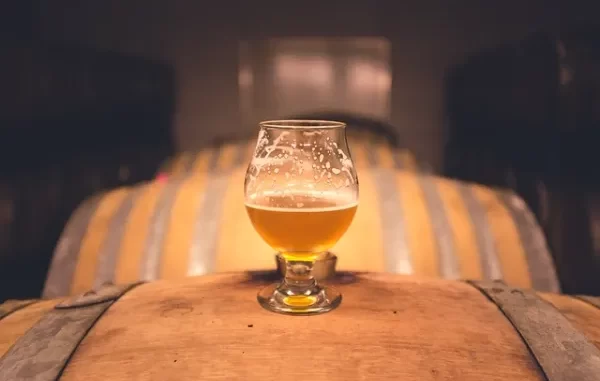
Brewing Brilliance: Unveiling the Fun Facts About Beer
Beer, the age-old libation cherished across cultures and continents, transcends its liquid form to become a social lubricant, a symbol of celebration, and a canvas for diverse flavors. Beyond the familiar clink of glasses and the effervescent bubbles lies a rich tapestry of fun and surprising facts that add depth to the world of brewing.
From ancient civilizations’ earliest brews to the modern craft beer revolution, the story of beer is as intoxicating as the beverage itself. Join us as we tap into the frothy universe of fun facts about beer, exploring the brew’s intriguing history, diverse styles, and the quirky anecdotes that make it a perennial favorite in the global mosaic of libations. Cheers to the fascinating journey ahead
Why is Beer Considered One of the World’s Oldest Beverages?
Beer has long been celebrated as one of the world’s oldest beverages, with archaeological evidence suggesting its production and consumption as far back as the 6th millennium BC. This ancient beverage has a strong connection to the development of civilization itself, as evidence suggests that it served a key role in the emergence of organized societies.
The earliest beers were made by fermenting grains such as barley, wheat, and rye, with the oldest known recipes for beer dating back to the Sumerian civilization in ancient Mesopotamia. In fact, archaeological evidence indicates that beer was so important to the Sumerians that it was even used as currency.
Brewing beer was also likely seen as an important ritual in many ancient societies. For example, in ancient Egypt, beer was closely linked to religious ceremonies and offerings to the gods. In addition to its spiritual significance, beer also provided a safe source of hydration in places where drinking water may have been contaminated.
Throughout history, beer has maintained its importance as a key part of many cultures and societies. It has been enjoyed as a celebratory beverage, an important part of religious ceremonies, and a source of nutrition. In many ways, beer has been a fundamental part of human culture for thousands of years, making it one of the oldest beverages in the world.
How Did the Different Types of Beer Develop?
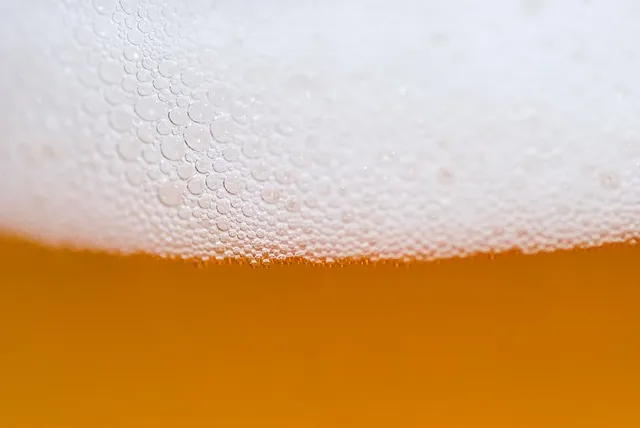
The development of different types of beer can be traced back to ancient civilizations. The Sumerians, who lived in Mesopotamia, are credited with being the first civilization to brew beer. They brewed beer with barley, wheat, and dates, and added honey as a sweetener. This beer was used for religious ceremonies as well as everyday consumption.
As beer production spread, it was further developed by the Romans, who added hops to the beer to add flavor and stability. This allowed beer to keep for longer and be transported further distances without spoiling. Hops are still used in beer production today to provide flavor and bitterness.
In the Middle Ages, monasteries began brewing beer. Monks experimented with adding different flavors to the beer, such as spices like coriander, nutmeg, and anise. This resulted in the development of different styles of beer, such as witbier and kölsch.
In the 19th century, German immigrants brought lager beer to the United States. This type of beer is brewed with bottom-fermenting yeast, which ferments at lower temperatures and yields a dryer, crisper beer. Lager beer became popular in the United States and is the most widely consumed type of beer today.
In the early 20th century, craft beer began to emerge. Craft brewers experimented with different ingredients and brewing techniques to create unique flavors and styles of beer. This led to the development of many new styles of beer, such as pale ale, India pale ale, stout, porter, and sour beer.
Today, there are countless styles of beer available for consumption. Each style of beer has its own unique characteristics, and the variety of flavors and styles continues to expand as craft brewers continue to innovate and experiment.
What Are Some Interesting Facts about the Beer Brewing Process?
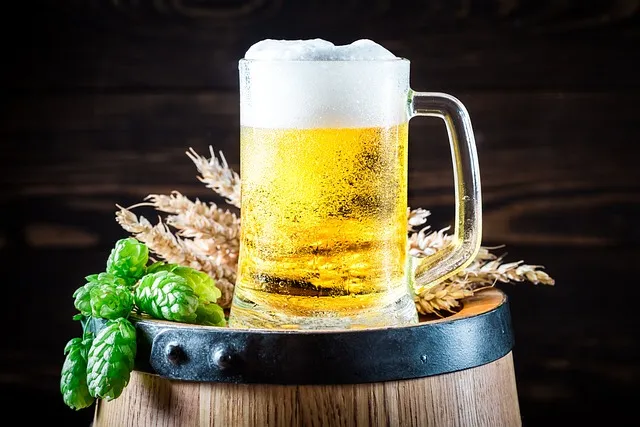
- Beer has been around since ancient times, with evidence of it appearing in texts from the Sumerians and Egyptians.
- The process of beer brewing begins with the malting of grains, usually barley or wheat. The grains are soaked in water and then heated, which activates enzymes that convert the grain’s starches into sugars.
- The grains are then dried in a kiln, which stops the enzymatic process and gives the malt its flavor.
- The next step is mashing, where the grains are mixed with hot water to create a sugary liquid called wort.
- The wort is then boiled, during which time hops are added for flavor and aroma.
- After boiling, the wort is cooled and transferred to a fermentation tank, where yeast is added to convert the sugars into alcohol.
- The beer is then aged, filtered, and carbonated before being bottled or canned for consumption.
What are the Health Benefits of Drinking Beer?
Beer has long been a popular beverage consumed by adults around the world. As with any alcoholic drink, moderation and caution is key when it comes to drinking beer. However, when consumed in moderation, beer can offer some health benefits.
One benefit to drinking beer is improved cardiovascular health. Studies have shown that consuming moderate amounts of beer can help to decrease the risk of heart attack and stroke. Beer is also a good source of dietary silicon, which has been linked to a decrease in the risk of osteoporosis.
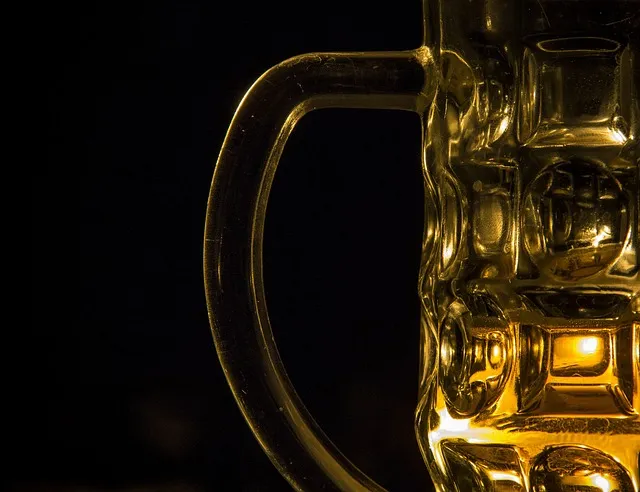
Beer also contains a number of other beneficial compounds, including vitamins, minerals and antioxidants. These compounds can help to reduce the risk of certain types of cancer, including colon and breast cancer. Additionally, beer can help to reduce the risk of developing type 2 diabetes.
Finally, beer can help to improve cognitive function. Beer consumption has been linked to improved memory, focus, and reaction time. Additionally, moderate beer consumption has been linked to improved mood and a decreased risk of developing depression.
In conclusion, when consumed in moderation, beer can offer a number of health benefits. It can help to reduce the risk of cardiovascular disease, certain types of cancer, and type 2 diabetes. Additionally, it can help to improve cognitive function and overall mood.
What Are Some Fun Ideas for a Beer-Themed Party?
- Create a Beer-Themed Menu: Incorporate beer into the menu in creative ways. Offer beer-battered appetizers, such as onion rings and mushrooms. Serve entrees with beer-infused sauces or incorporate beer into the main dish. Use beer as an ingredient for deserts, like beer-infused brownies or beer ice cream.
- Create a Beer Tasting Station: Have several different beers available for party guests to sample. Offer a range of beers, from light pale ales to dark stouts, to give guests a variety of flavors to enjoy. Include cards with each beer that list the type of beer, its alcohol content, and flavor notes.
- Design Beer-Themed Games: Have party guests compete in a beer-pong tournament or a beer-tasting competition. You can also set up a trivia game, where guests have to answer questions about beer styles and brewing processes.
- Decorate with Beer-Themed Decor: Hang beer-themed posters and banners throughout the party space. Use beer bottles and cans as part of the table decorations, such as using beer bottles as vases for flower arrangements.
- Play Beer-Themed Music: Create a beer-themed playlist to set the mood for the party. Include classic songs about beer, such as “99 Bottles of Beer on the Wall” and “Drinkin’ Beer and Wastin’ Bullets.” You can also include more contemporary songs, like “Beer for My Horses” by Toby Keith.
Sip, Savor, Celebrate: A Toast to the Fun Facts About Beer
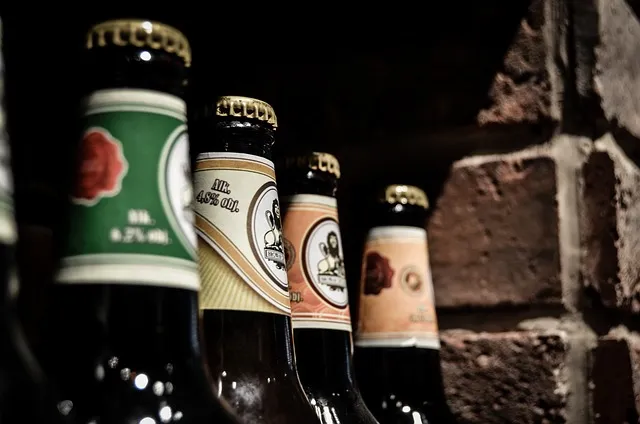
In conclusion, our frolic through the fun facts about beer has taken us on a spirited journey that mirrors the diversity and vibrancy found in every pint. From the ancient roots of brewing to the contemporary explosion of craft beers, it’s clear that this effervescent beverage is more than just a drink—it’s a cultural phenomenon, a testament to human creativity, and a bridge connecting people around the world. As we raise our glasses to the fascinating tales and surprising tidbits about beer, let’s toast to the fact that, whether shared among friends or enjoyed in solitude, the golden nectar continues to weave a tapestry of stories as rich and complex as the countless brews that have graced tables throughout history. Cheers to the enduring legacy of beer and the never-ending exploration of its delightful complexities!
If you liked our article Fun facts about beer, you might also like Fun facts about lemonade.

Leave a Reply